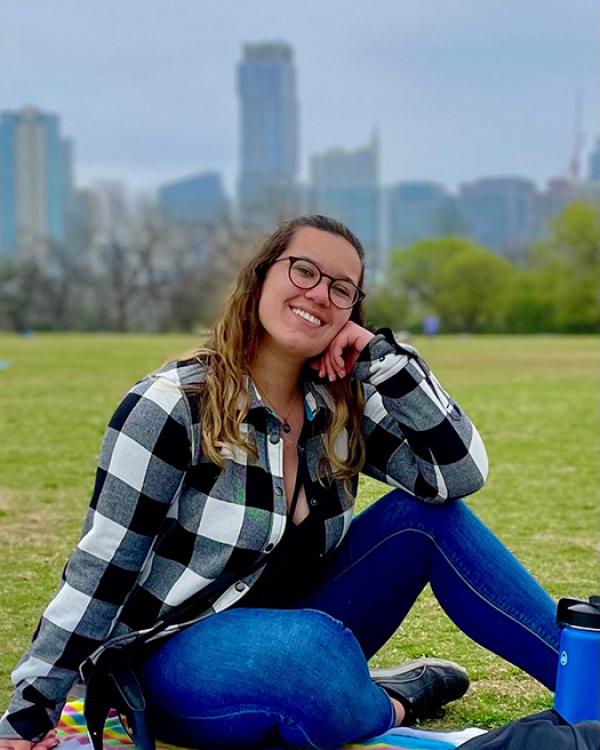
Delaney Hawkins is a graduate student in the Teacher Education Program, pursuing a Master's degree as well as an Educational Specialist Credential to work with students with Extensive Support Needs. Delaney completed her undergraduate degree at UC Santa Barbara in fall 2020, receiving a B.A. in Communication and minors in Educational Studies and Applied Psychology. She has been working as a Registered Behavior Technician, providing ABA services for individuals with autism as well as individuals with mild to moderate disabilities and Extensive Support needs.
GGSE: How has your undergraduate degree in Communication influenced your graduate school work?
Hawkins: My undergraduate degree in Communication helped me prepare for rigorous work in graduate school. As an undergraduate I was able to uphold the standards expected by the university, and I worked very hard to complete my degree to get me where I am today. I decided to major in Communication in order to really understand the research and processes of Communication among others, from common conversations with friends to meeting or passing by strangers while walking to class. Along with this focus, I had the opportunity to learn more about different types of nonverbal communication. One of the courses that has influenced my work most was a family communication class. This class taught me the different ways families communicate with each other and how this leads to a certain outcome. This research and knowledge have influenced a ton of my graduate schoolwork.
As a special education teacher, one is also a student’s case manager. Therefore, I also have the responsibility of reaching out to families and creating the best opportunities for that student. Understanding the way a family functions can now provide me with an idea of how the family communicates, which can then help me build positive relationships with families.
GGSE: How has your undergraduate minor in Applied Psychology led you to your work as a Registered Behavior Technician?
Hawkins: The undergraduate minor in Applied Psychology helped me learn the use of interventions, how to include them in instruction, and how they help with children’s behavioral needs. I received the opportunity through this minor to participate as a research assistant at the UCSB Children’s Center, practicing interventions to help build evidence-based strategies for students with interfering behaviors. This then introduced me to interventions like PBS and PRT, which are core, evidence-based strategies for teaching students with disabilities. This work consequently helped me become a behavior technician, and I was then able to provide ABA services for families in need during the pandemic. This opportunity helped me become an expert in the use of Positive Behavioral Supports for students with severe disabilities.
GGSE: You are passionate about making a difference in children’s lives and ensuring equal opportunity for all. How do these values inform your teaching practices?
Hawkins: In the field of special education, students are faced with difficult challenges and not provided equal access to all areas of education. For example, in the past students were often hidden from the real world and sent away to facilities meant to “fix” them. It wasn’t until 1970 that laws provided special education and equality for most students. This knowledge is what drives my teaching practices. My teaching provides the utmost support in students reaching their full potential. One of my most important practices is ensuring inclusion for my future students so they can be given optimal opportunities and work with their peers in the classroom setting. I want my future students to feel included in classroom activities in every context. I strive for my future students to work in general education classes because I want to help prove wrong the stigmas surrounding students in special education.
I fight for equal representation among those who have been discriminated against for years. These values drive my teaching and encourage me in finding equal opportunities for my students to reach their highest potential.
GGSE: How do you decompress after a challenging week of work and classes?
Hawkins: After a challenging week of work and classes, I really try to find time to practice self-care on the weekends. I am an introvert, and I thrive off of alone time. I like to find a good movie to sit and watch for a couple of hours as a distraction and in order to not overwork myself. I also find the time to go to the gym, especially on really challenging days, to help clear my head and see other perspectives on challenging problems.
However, I’m not a full homebody. I like to go out with friends and try to go on adventures around Santa Barbara such as hiking, trying new restaurants, and thrifting. I also like to sometimes hit the beach or paddleboard when the weather is really nice!